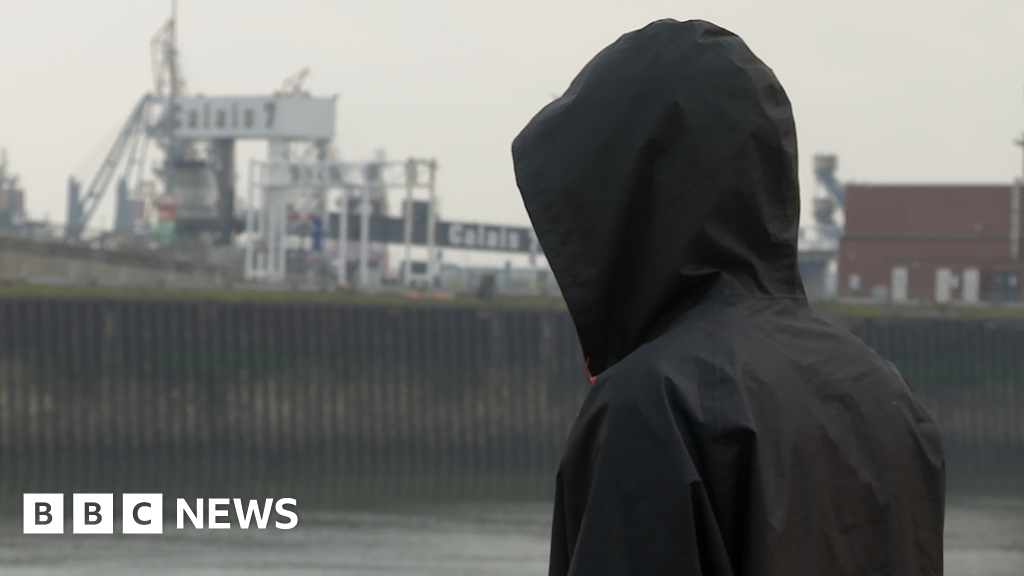Britain’s Parliament will vote Tuesday on whether to back a law that seeks to deter asylum seekers, about 50,000 last year, crossing the English Channel.
LONDON − Britain has a problem with asylum seekers crossing the English Channel from France in small inflatable boats, dinghies and even kayaks. The government’s proposed solution? Send them to Rwanda.
Rwanda is more than 4,300 miles away from Britain.
Britain’s Parliament voted Tuesday to back a law that seeks to deter people − there were about 50,000 of them last year − from making these dangerous journeys.
The policy was first announced by former Prime Minister Boris Johnson in 2022. The parliamentary approval follows months of delays, resignations by high-profile ministers and legal challenges.
Current British leader Rishi Sunak has made “stopping the boats” one of his legislative priorities. Here’s what Britain’s Rwanda asylum bill is all about − and why some critics believe it could set a “dangerous” precedent.
What is Britain’s Rwanda bill?
Sunak wants to deport to the east African country some people who attempt to enter Britain via the English Channel to claim asylum. The plan is part of his government’s attempt to halt illegal migration routes, an issue that has led to rebellions from the right wing of Sunak’s ruling Conservative Party and vexes some voters.
British PM Cameron is back Braverman ousted for Palestinian views
Many of those who make the 20-mile English Channel crossings are from Iran, Iraq and Afghanistan − countries where conflicts have been or are currently raging − and where political freedoms are scarce.
Many also come from Albania, one of the poorest countries on Europe’s fringes.
The first deportation flights to Rwanda were due to take off last summer. They were cancelled at the last minute after Britain’s Supreme Court ruled that Rwanda was not a safe country for refugees because they might face persecution. The court determined that the plan would likely breach British and international human rights law.
“The British government refers to people arriving through this route as ‘illegal migrants’ but that in itself is contestable because the right to seek asylum is a human right,” said James Wilson, the director of Detention Action, a British charity that campaigns for better treatment for asylum seekers.
What’s happened with Tuesday’s Rwanda bill vote
Lawmakers approved an initial reading of the bill by 313 to 269 − a majority of 44.
Sunak’s Conservatives currently have a working majority of 56 in Britain’s 650-seat Parliament.
Sunak got the legislation through Parliament after his government recently signed a new treaty with Rwanda and unveiled emergency supplementary legislation − the “Safety of Rwanda Bill” − aimed at addressing concerns from the Supreme Court about how safe Rwanda is for refugees.
The Freedom House think tank notes that while Rwanda’s government under President Paul Kagame has “maintained stability and economic growth, it has also suppressed political dissent though pervasive surveillance, intimidation, torture and renditions or suspected assassinations of exiled dissidents.”
Tuesday’s House of Commons vote was specifically on the the “Safety of Rwanda Bill,” which has divided Sunak’s Cabinet and sparked the resignation of Robert Jenrick, his immigration minister, and Suella Braverman, his interior minister. Both have said the Rwanda plan was doomed to fail because it was insufficiently radical.
The legislation could still be held up in a second reading in January or in the House of Lords, the upper chamber of Britain’s Parliament. If it fails there, Sunak will be under renewed pressure as polls show his party deeply trailing the opposition Labour Party ahead of an expected general election next year.
Immigration ranks as the second most important issue for Britain’s public after the economy, according to YouGov, an online survey firm. Braverman has warned Sunak he faces “electoral oblivion” if the vote fails.
What does Rwanda get out of it?
Money, mostly.
The British government has already paid Rwanda about $300 million for the asylum scheme, even though not a single person has yet to be put on one of the deportation flights.
The money is meant for Rwanda to house the refugees in specially built hostels and hotels. Each asylum seeker to Rwanda is expected cost, on average, $213,450, according to the British government.
But Victoire Ingabire Umuhoza, a Rwandan opposition politician, said that Britain’s asylum bill is not a good fit for countries like hers, which are poor, and where the government struggles to meet most peoples’ basic needs.
“The refugees will live in nice buildings in the capital while Rwandans live in abject poverty,” she said.
Umuhoza said that Rwanda already has an influx of refugees from neighboring countries such as Burundi and the Democratic Republic of Congo that it is not adequately caring for.
“Rwanda is not a free country where you can express your mind freely,” she said.
In fact, one of the quirks of the agreement, as some legal and human rights scholars have pointed out, is that Britain will still grant asylum to Rwandans − the very country it’s sending all its asylum seekers to.
Asylum claims need to be heard ‘fully and fairly’
Wilson, of Detention Action, said there’s few precedents for what Britain is trying to do with its asylum seekers.
For more than two decades, Australia has been sending asylum-seekers to Manus Island in Papua New Guinea and Nauru, a country in the Pacific Ocean. Between 2013-2018, Israel pursued a short-lived experiment with Rwanda along similar lines to Britain’s idea, though participation was voluntary.
But neither program, he said, has produced evidence to indicate they are a “success story.”
“It’s very concerning,” he said. “Every asylum claim to the U.K. should be heard fully and fairly in the U.K.”
He said that the “moving of people to any other country or territory is a step back” from Britain’s commitment to the United Nations’ 1951 Refugee Convention, a key treaty that established the rights of refugees.
Tazreena Sajjad, a professor of politics and security at the American University School of International Service, in Washington, said that across the world countries are finding an increasing number of ways to deter asylum-seekers and refugees. She said these “deterrence measures” can be physical and bureaucratic as well as symbolic measures and range from border walls in the U.S. and Europe to border-control technologies that utilize military-grade technology including drones, facial recognition surveillance, lie detectors and motion sensors.
Trump isn’t the only one who made a wall :These European nations already did
She said direct violence used by border guards and security personnel is also common practice.
“For years, there has been documented evidence of violence along the Balkan route in Europe where border security has used attack dogs, torture, physical and sexual humiliation and beatings, including of pregnant women and children, to deter entry. In Europe, many asylum-seekers remain stranded in forests and border areas such as along the Poland-Belarus border because neither side will grant them entry.”
All this, she said, reflects “different types of violence on the bodies and lives of refugees and asylum-seekers.”

Abhinav Thawait is a globe-trotting correspondent with a passion for international affairs. With a background in international relations, he offers a global perspective on the most pressing issues around the world. Abhinav’s curiosity takes his to the far corners of the earth, where he seeks to share untold stories and diverse viewpoints.







